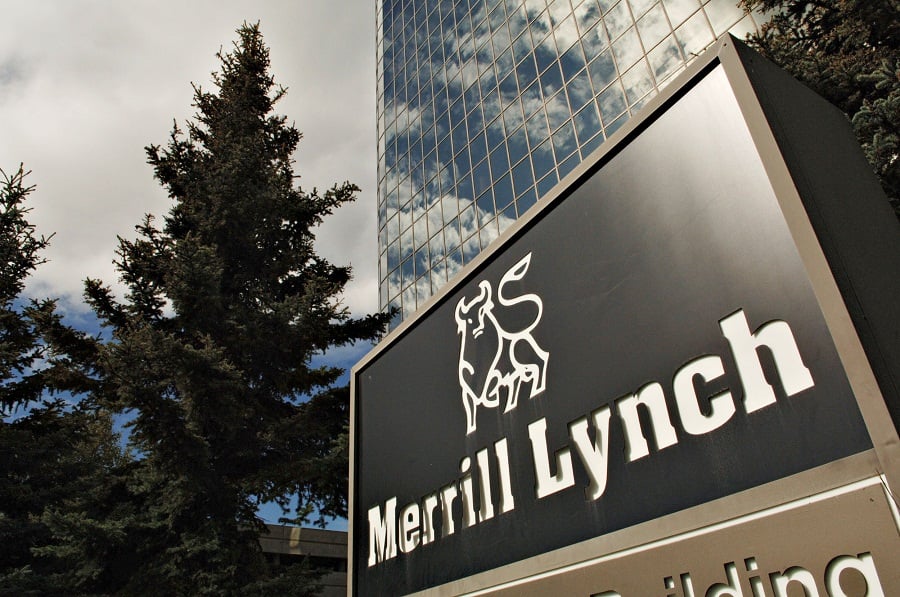

Merrill Lynch Wealth Management is erasing a 4-year-old cut in compensation that cost some top advisers up to $21,600 a year in pay.
Known as the "3% investment policy" internally at Merrill Lynch, the rule was introduced at the end of 2018 for the next year's compensation plan and acted as a modest — if nagging — monthly charge on the revenues advisers generated.
At the time, Andy Sieg, Merrill Lynch’s head of wealth management, said the 3% hurdle in revenue production was comparable to pay policies at other large brokerage firms. At the end of 2020, for example, Wells Fargo Advisors increased the hurdle, or dollar amount of revenue a financial adviser must produce to get a higher payout, by $1,000.
Merrill's tune on its 3% hurdle has changed: It is eliminating the policy in the 2023 compensation plan it's introducing to financial advisers Thursday afternoon.
"Financial advisers were a little frustrated with it," said a Merrill Lynch executive who asked not to be named. "Essentially, they could not grow out of it."
Under the old plan, Merrill Lynch hung onto 3% of the revenue that financial advisers produced each month, up to the first $4,000 in fees and commissions the adviser generated. After that, the adviser was paid 100% of the firm’s compensation plan, known as the grid in the securities industry.
Over a calendar year, that meant Merrill Lynch could withhold up to $48,000 annually in “production,” meaning fees and commissions, per adviser. Merrill’s top payout percentage to financial advisers at the time was 45% of their gross production. That translated into top-producing advisers losing $21,600 annually in pay.
"It wasn’t big money, but it was annoying and mean-spirited," said Danny Sarch, a veteran industry recruiter. "It makes sense for Merrill to recognize they made a mistake."
Seeking to goose its thundering herd of advisers and brokers to chase new clients, Merrill Lynch has been paying its financial advisers since 2018 under a plan that it dubs "the growth grid," which rewards advisers who bring in healthy numbers of net new clients and households.
This year's compensation plan continues with that focus, according to the Merrill Lynch executive. For example, financial advisers for the first time can "carry forward," or essentially bank, those new households once they hit a certain tier; advisers with eight or more gained household credits will carry forward two households into the next year.
Merrill Lynch is also focused to make it easier to grow teams, the executive said, and next year is reducing those new household hurdles for advisers who are just starting their careers.
It's also focused on widening a succession planning opportunity, and allowing advisers to transition a portion of their business, receive an equity award payout and still remain in the adviser role. The new levels of annual fees and commissions to qualify for the program is $2.5 million; in the past, it had been $5 million.
Merrill Lynch is also adjusting payouts for specific products sold or recommended by financial advisers next year.
For example, payout levels on certificates of deposit will increase 4 basis points, while payouts will be cut for other products. Those include equities, fixed income and options, as well as the new issue offerings, including market-linked investments, unit investment trusts, new debt issues, closed-end funds and new equity issues.
Alternative investments, 529 savings plans, annuities and institutional retirement plans will not see a change in payout, according to the company.

Catch-up contributions, required minimum distributions, and 529 plans are just some of the areas the Biden-ratified legislation touches.

Following a similar move by Robinhood, the online investing platform said it will also offer 24/5 trading initially with a menu of 100 US-listed stocks and ETFs.

The private equity giant will support the advisor tech marketing firm in boosting its AI capabilities and scaling its enterprise relationships.

The privately backed RIA's newest partner firm brings $850 million in assets while giving it a new foothold in the Salt Lake City region.

The latest preliminary data show $117 billion in second-quarter sales, but hints of a slowdown are emerging.
Orion's Tom Wilson on delivering coordinated, high-touch service in a world where returns alone no longer set you apart.
Barely a decade old, registered index-linked annuities have quickly surged in popularity, thanks to their unique blend of protection and growth potential—an appealing option for investors looking to chart a steadier course through today's choppy market waters, says Myles Lambert, Brighthouse Financial.
